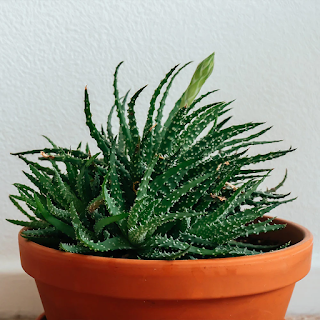Plant Gives Oxygen 24 Hours Naturally
In our bustling lives, we often overlook the significance of the natural world around us. While we are engrossed in our daily tasks, there exists a wondrous process that happens every moment, silently providing us with the breath of life - the continuous production of oxygen by plants. While all plants play a vital role in this essential process, there is a specific group that stands out for its ability to release oxygen even during the night. In this article, we will delve into the magical realm of these unique oxygen providers and explore their benefits for us and the environment.
List Of Plants that produces oxygen 24-Hours
Below ia the list of plants are known for their ability to release oxygen continuously, making them excellent choices for indoor spaces where oxygen production is desired around the clock. Additionally, many of them have other benefits, such as air purification and aesthetic appeal.
| Plant Name | Scientific Name | Common Features |
|---|---|---|
| Snake Plant | Sansevieria trifasciata | Low maintenance |
| Aloe Vera | Aloe barbadensis miller | Medicinal |
| Peace Lily | Spathiphyllum spp. | Air purifying |
| Gerbera Daisy | Gerbera jamesonii | Colorful flowers |
| Bamboo Palm | Chamaedorea seifrizii | Tropical appeal |
| Spider Plant | Chlorophytum comosum | Easy to grow |
| Boston Fern | Nephrolepis exaltata | Humidity-loving |
| Areca Palm | Dypsis lutescens | Elegant foliage |
| Rubber Plant | Ficus elastica | Indoor-friendly |
| Pothos | Epipremnum aureum | Low light tolerant |
Understanding the Miracle of Oxygen Production
Before we unveil the identity of the plants that give oxygen 24 hours a day, let's first grasp the miraculous process of oxygen production in plants. Through the marvel of photosynthesis, plants harness sunlight, water, and carbon dioxide to synthesize glucose and oxygen. During the day, most plants release oxygen as a byproduct of photosynthesis. However, there are some exceptional species that continue this life-giving process throughout the night.
The Unsung Heroes: Oxygen-Producing Plants at Night
Explore the hidden world of nature's nocturnal champions in "The Unsung Heroes: Oxygen-Producing Plants at Night." Delve into the fascinating realm of botanical wonders that work tirelessly while the world sleeps, replenishing the air with life-sustaining oxygen. Uncover the secrets of these silent contributors to our well-being and gain a newfound appreciation for the vital role they play in our ecosystem. Join us on a journey to discover the unsung heroes of the plant kingdom, working tirelessly to keep our nights filled with fresh, breathable air.
Snake Plant (Sansevieria trifasciata)
The resilient and elegant Snake Plant, also known as Mother-in-Law's Tongue, is one of the superheroes of the night. Native to Africa, this striking plant releases oxygen during the night, making it an ideal addition to your bedroom for a fresh and healthy sleep environment.
Aloe Vera (Aloe barbadensis miller)
Aloe Vera, renowned for its healing properties, is not only a popular household plant but also an exceptional nighttime oxygen supplier. Apart from its soothing gel, it provides a steady flow of oxygen while you rest, contributing to better air quality in your home.
Neem Tree (Azadirachta indica)
The Neem Tree, revered for its medicinal benefits in traditional practices, is another nocturnal oxygen giver. Having a Neem Tree in your garden not only enriches the surroundings but also ensures a constant supply of fresh air, even during the dark hours.
The Human Connection: Benefits of Oxygen-Producing Plants
The presence of oxygen-giving plants, both day and night, carries numerous benefits for Us:
Conclusion
In a world filled with constant hustle, taking a moment to appreciate the wonders of nature can be rejuvenating. Oxygen-producing plants, especially those that work round the clock, symbolize the ever-giving nature of our ecosystem. From the charming Snake Plant to the soothing Aloe Vera and the noble Neem Tree, these green companions enrich our lives in more ways than one. So, let's embrace their presence and cherish the gift of oxygen they bestow upon us, ensuring a healthier and more sustainable future.
FAQs
1. Can I keep these oxygen-producing plants indoors?
Absolutely! These plants thrive indoors and make excellent additions to your home or office space.
2. Do these plants require special care?
While they are relatively low-maintenance, providing adequate sunlight and water will ensure their optimal growth and oxygen production.
3. Can I have these plants in my bedroom if I have allergies?
Yes, these plants are generally considered allergy-friendly and can even help improve air quality, reducing allergy triggers.
4. Are there other plants that provide oxygen at night?
Yes, while Snake Plants, Aloe Vera, and Neem Trees are some of the most popular choices, other plants like Gerbera daisies and Orchids also release oxygen during the night.
5. How do these plants contribute to the environment?
Apart from releasing oxygen, they play a crucial role in carbon sequestration, support wildlife, and enhance the overall ecological balance.






